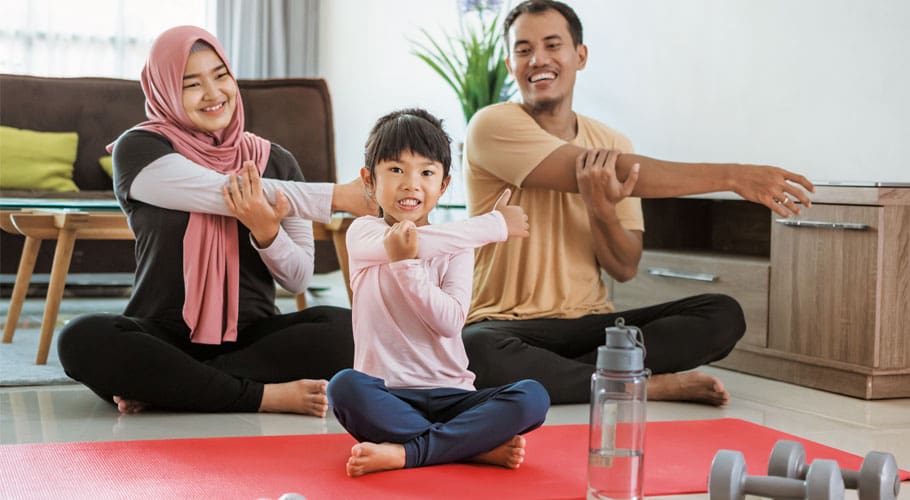
Family health
Resolutions and practices that can benefit everyone from children to grandparents
January is a great time to make and follow through on 2022 family health resolutions to maintain the best physical and mental shape possible. Here’s a quick overview to help you get started.
Exercise regularly
Government research shows that exercise benefits all people: young children to seniors, pregnant women or those in post-delivery, people with chronic conditions or a disability, and those trying to reduce the risk of chronic disease. Set a doable exercise goal and stick with it to gain the heart, muscle and mind benefits that it brings. (See “How much exercise?” for recommendations for all ages.)
Eat healthfully
The Centers for Disease Control and Prevention (CDC) notes that poor diet can contribute to obesity, heart disease and some cancers. To address this:
Prevent infections
The Association for Professionals in Infection Control and Epidemiology suggests the following ways to prevent spreading viruses to others:
Wear a mask around others; cover your mouth and nose when you cough or sneeze; clean your hands often with soap and water or hand sanitizer; avoid touching your eyes, nose or mouth; get your flu shot and COVID-19 vaccination; socially distance; and avoid large crowds, especially indoors.
Unplug
The American Academy of Child & Adolescent Psychiatry states that too much screen time may lead to problems with sleep, weight, poor self-image and lower school grades, so spend quality time with your family—unplugged—and foster use of games and activities that encourage exercise, creativity and enrichment.
Practice positive parenting
Pediatrician Edward Gaydos offers tips on how to foster good behavior in children:
Discipline works better than punishment.Use discipline to engage with kids, teach self-control, mold their character and know right from wrong.
Encourage and praise appropriate behavior. Compliment your child to help positively mold their behavior and build confidence.
Communicate expectations and be consistent. Set limits and stick to them. Not following rules should have expected consequences.
Be a parent, not a pal.Firm leadership and guidance will help children handle life’s challenges as they grow. Be careful of your words and actions. Kids remember them for a lifetime.
Use medicines wisely
Care for seniors
The CDC says that it’s important to listen to older family members who require care and their caregivers to understand their situation. Check in on isolated older adults, be able to recognize and report elder abuse, and be prepared to provide extra support to overburdened caregivers.


Children and adolescents 6 to 17 years old should do an hour or more of moderate to vigorous exercise daily.
Adults should do at least two and a half to five hours a week of moderate-intensity aerobic exercise, or an hour and a quarter to two and a half hours a week of vigorous aerobic exercise, or an equivalent combination.
Seniors should do balance training as well as aerobic and muscle-strengthening activities as their conditions and abilities allow.—LRB



